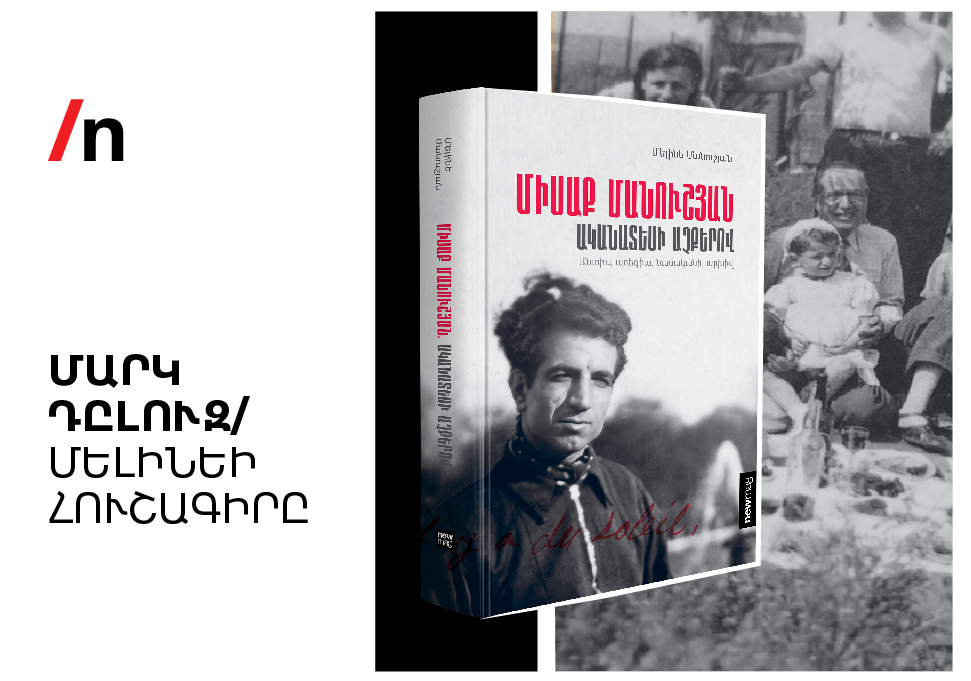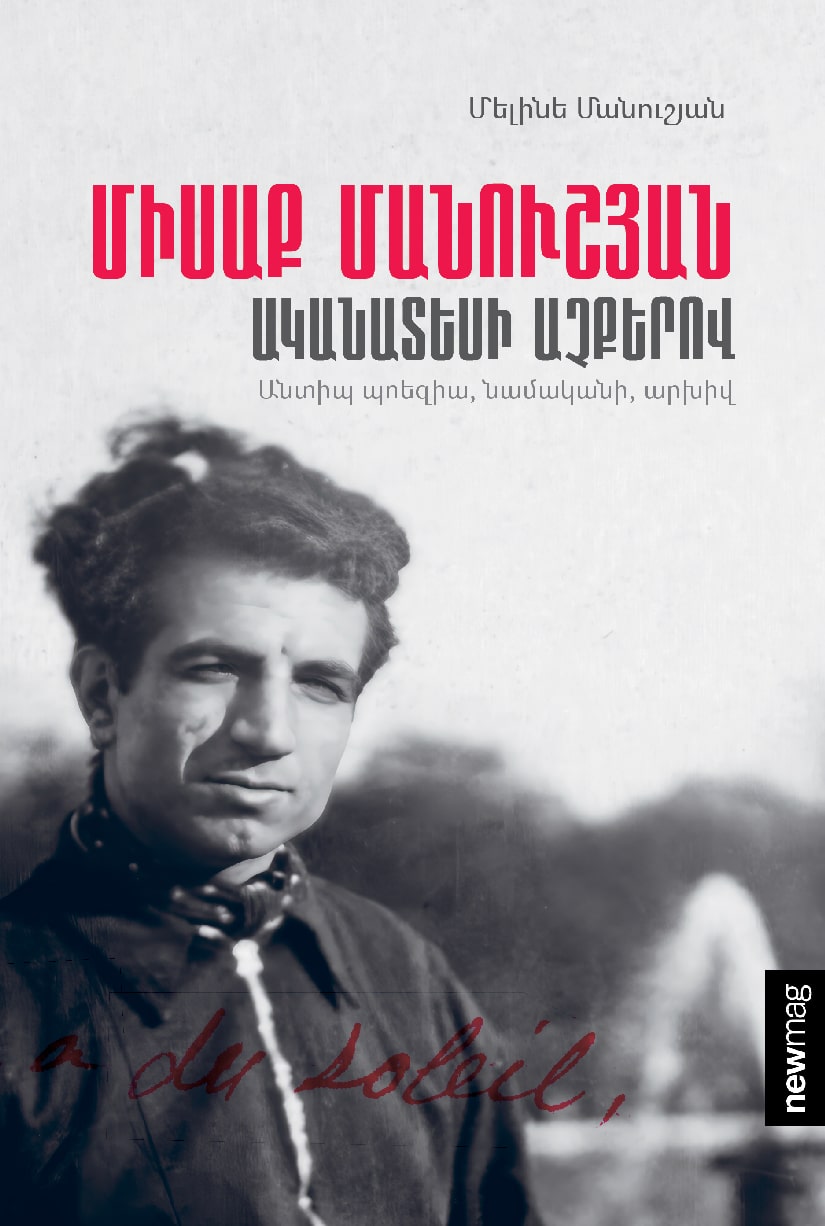Exclusive Interview with Marc Deleuze, First Memoirist of the Manouchians (video)
12/20/2024

When Méliné Manouchian, the wife of French-Armenian resistance hero Missak Manouchian, returned to France from Armenia, she invited young writer and poet Marc Deleuze to her home. Over the course of a month, Deleuze listened to her stories about Misak, documenting them in what became a seminal memoir. Méliné’s account, “Missak Manouchian: Through the Eyes of an Eyewitness”, republished by Newmag, now includes an epilogue detailing how Deleuze met Méliné, listened to her stories, and crafted this tribute.
In an exclusive interview, Marc Deleuze recalls his time with Méliné Manouchian half a century ago. They met at her apartment on Rue Condorcet in Paris’s 9th arrondissement.
“These are 50 years of memories—a long time to carry such stories. Méliné would make tea and serve little cookies, arranging them on a small round table. We’d sit by the window, I’d turn on my tape recorder, which she amusingly called ‘your car.’ Sometimes she’d say, ‘Turn off your car,’ because she wanted to tell me something without recording.”
Méliné’s memoirs about Misak were first published in 1974 under the title “Manouchian”. Now republished by Newmag, the new edition includes never-before-seen documents, facts, and discoveries about Misak Manouchian, one of France’s most celebrated resistance heroes of Armenian descent.
“I saw Méliné cry twice. The first time was when she told me about her decision to terminate a pregnancy during the war—a decision Misak did not agree with. The second time was when she described leaving Armenia. A man gave her violets, saying the flowers matched the color of her eyes.”
Deleuze emphasizes that this memoir will help readers see Manouchian as more than a freedom fighter.
“Misak was a poet and an intellectual. It’s tragic that France mainly remembers him as a resistance hero. He wasn’t a soldier by nature. He took up arms out of necessity, not desire. The image of the hero has overshadowed the humanist, and that’s something I find deeply painful.”
The original memoir has been out of print for decades, but in 2023, the French publishing house Parentez reissued it, enriched with new materials. Translator and publishing head Houri Varzhapetyan explains the enhancements:
“The first part remains Méliné’s memoir, but now includes annotations. The second part features exclusive documents—many previously unpublished—that reveal new insights into Missak Manouchian’s life and legacy.”
The book, “Missak Manouchian: Through the Eyes of an Eyewitness”, delves into how Misak became a central figure in the French resistance. A blend of historical, investigative, and journalistic writing, it paints a detailed picture of Missak and Méliné, the challenges they faced, and the extraordinary times they lived through.

Meline Manouchian
7800 ֏
Description
On February 21, 1944, the Nazis shot 22 members of the French Resistance in the Mont Valerien castle, not far from Paris. They remained in history as "Manouchian's group". This memoir of Misak Manouchian's wife and friend of the struggle, Meline, is a very personal testimony. Many events and details described in the book could not be told by anyone else with such accuracy and sensitivity. The book contains documents and letters (some never published), which help to see Manouchian in a new light. The hero of the resistance movement dreamed of remaining a poet and living with art and music. The group led by Misak Manouchian stood out for its actions in 1941-1943: murders of high-ranking Nazis, sabotage, disruption of trains transporting weapons and ammunition, failures of German military facilities. The book helps to imagine the "Armenian resistance" within the French movement, its roots, psychological and human characteristics. Meline and Misak, two orphans who survived the Genocide, along with many other Armenians, intellectuals, artists, who took refuge in France from all over the world, participated in the resistance of the country that gave them shelter and waged their struggle against evil and for dignity.
Read also

Winterfest to feature David Georgyan’s sci-fi action novel Impedance (trailer)

At Winterfest 2026, Newmag will present Marianna Hakobyan’s “Don’t Change the Names” (trailer)

Closing and Award Ceremony of the “Sprout in Armenian – 2025” Competition at Newmag Winterfest

“I hope my story will inspire many and help them keep believing and dreaming.” Henrikh Mkhitaryan’s welcoming speech to Armenian fans (video)

